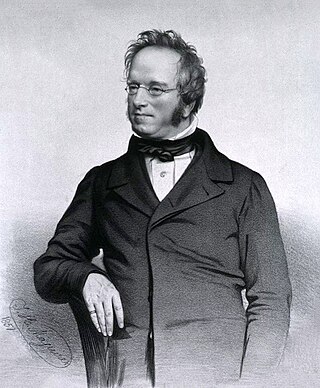
John Edward Gray was a British zoologist. He was the elder brother of zoologist George Robert Gray and son of the pharmacologist and botanist Samuel Frederick Gray (1766–1828). The standard author abbreviation J.E.Gray is used to indicate this person as the author when citing a botanical name. The same is used for a zoological name.

Edward Forbes FRS, FGS was a Manx naturalist. In 1846, he proposed that the distributions of montane plants and animals had been compressed downslope, and some oceanic islands connected to the mainland, during the recent ice age. This mechanism, which was the first natural explanation to explain the distributions of the same species on now-isolated islands and mountain tops, was discovered independently by Charles Darwin, who credited Forbes with the idea. He also incorrectly deduced the so-called azoic hypothesis, that life under the sea would decline to the point that no life forms could exist below a certain depth.
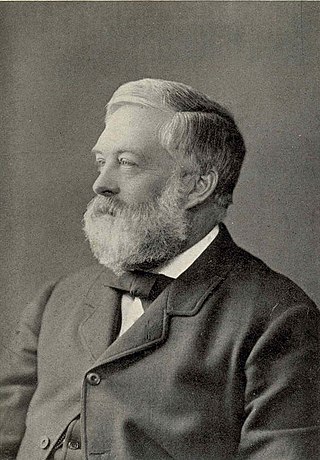
Sir Charles Wyville Thomson was a Scottish natural historian and marine zoologist. He served as the chief scientist on the Challenger expedition; his work there revolutionized oceanography and led to his being knighted.

William Thompson was an Irish naturalist celebrated for his founding studies of the natural history of Ireland, especially in ornithology and marine biology. Thompson published numerous notes on the distribution, breeding, eggs, habitat, song, plumage, behaviour, nesting and food of birds. These formed the basis of his four-volume The Natural History of Ireland, and were much used by contemporary and later authors such as Francis Orpen Morris.

Wilfred Hudleston Hudleston was an English geologist, ornithologist and paleontologist.

John Gwyn Jeffreys FRS was a British conchologist and malacologist.

Robert Ball was an Irish naturalist. He served as the Director of the Dublin University Museum, and developed a method of dredging known as "Ball's dredge." He served as a secretary to the Royal Zoological Society of Ireland for two decades and was responsible for popularizing natural history through public educational outreach.
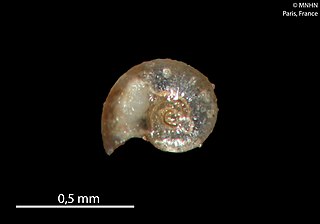
Omalogyra is a genus of minute marine gastropod molluscs in the family Omalogyridae.

Joshua Alder was a British cheesemonger and amateur zoologist and malacologist. As such, he specialized in the Tunicata, and in gastropods.
Lophiotoma brevicaudata is a species of sea snail, a marine gastropod mollusk in the family Turridae, the turrids.

Maculauger castigatus is a species of sea snail, a marine gastropod mollusk in the family Terebridae, the auger snails.

Colus jeffreysianus is a species of sea snail, a marine gastropod mollusk in the family Colidae, the true whelks and the like.
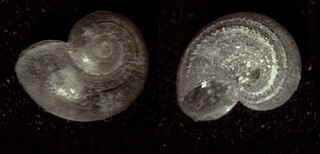
Skenea is a genus of small to minute sea snails, marine gastropod mollusks in the family Skeneidae.

Vexillum appelii is a species of small sea snail, marine gastropod mollusk in the family Costellariidae, the ribbed miters.
Vexillum puerile is a species of small sea snail, marine gastropod mollusk in the family Costellariidae, the ribbed miters.
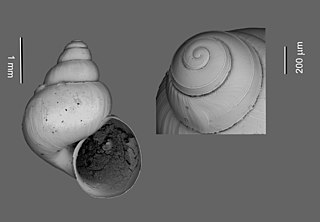
Benthonella is a genus of minute sea snails, marine gastropod mollusks or micromollusks in the family Rissoidae.
Turbonilla amoena is a species of sea snail, a marine gastropod mollusk in the family Pyramidellidae, the pyrams and their allies.
Thomas Graves was an officer of the Royal Navy and naturalist who worked extensively as a surveyor in the Mediterranean.
George Barlee was a British lawyer and conchologist.

Crenilabium exile is a species of sea snail, a marine gastropod mollusk in the family Acteonidae.
















